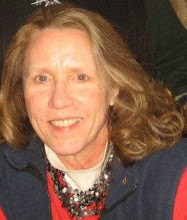
How does any scholar write
original (i.e.,
non-plagiarized) scholarly writing?
I'd like to share some highlights from an article I found while researching that question. This article was written for teachers of ESL graduate students, and it contains excellent insights for any scholarly writer: Matthew A. Edwards,
Teaching Foreign LL.M. Students About U.S. Legal Scholarship, 51 J. Legal Educ. 520 (2001). It's an article that has utility for both foreign LL.M. students as well as anyone writing scholarly writing for academic credit in the United States -- it hits a range of topics including what is originality, what types of scholarly writing are written, how to develop a thesis, why his thoughts for LL.M. students apply to U.S. students, etc. It's a quick read and well worth the effort; you can find it at HeinOnline, and in a text and periodicals search through your computer assisted legal research sources (e.g., Westlaw, Lexis, etc.)
Both Matthew Edwards and other authors I have read on this subject have given me the general insights I develop below:
Writers of seminar papers, papers for competitions, and law journal articles must "own" their material, bringing their own mind and insights to bear on the writing. Academic integrity standards require it.
Scholarly insight does not develop in one day's work. It's important to begin and continue a steady scholarly writing schedule, to allow the insights to develop, and to allow the mind to process the new content. It's also important to use draft opportunities to clearly delineate any content you have borrowed from other scholars' writing -- this will keep your teacher and student editor focused on helping your improve your own thinking and writing, rather than on wondering whether they should uncover sources not attributed in your draft. Be very clear about what part of the paper is your thinking, and what part of the paper is derived from another source. You need to provide citations for both exact phrases (which must be quoted) and for general organizational and structural ideas (which must be cited). In a draft mode, give the citation your best shot, but clearly footnote, end note [or note in a bracket, highlight, etc.] what you are borrowing and from where.
Make sure that any draft clearly identifies those pieces of the article that are the result of "cut and paste" research, which is a method that is fraught with some considerable danger. Only gingerly, and with great care, should a writer use a word processing cut and paste feature as she conducts computer research. Writers who do use the cut and paste feature should develop the habit of placing that material in some sort of red-letter format (and quote it) to keep clear of any claim that someone else's scholarship appears in work submitted for academic credit or for publication. The very best practice is to print out a hard copy of the material and read it carefully, noting in the margins the insights you bring to your reading of the text. Identify on the front page of the source how you have learned of the source, and find a way to acknowledge both sources in your submitted work product. Even from the hard-copy reading and handwritten notes, take care to note the source of quoted and paraphrased language, because U.S. attribution practice requires that these sources be acknowledged as well.
The very reading of the article, especially when coupled with the reading of additional articles, will prompt your own insights and develop scholarly questions that will be exciting and stimulating and conducive to original thinking. You will begin to see themes and differences and begin to synthesize the material that addresses your thesis. This is the start of thinking that is unique to you.
For a good discussion of how this process works, see: Elizabeth Fajans & Mary R. Falk,
Against the Tyranny of Paraphrase: Talking Back to Texts, 78 Cornell L. Rev. 163 (1993).
***
Two book publications focus on legal scholarly writing: one is by
Eugene Volkh, Academic Legal Writing and the other is by
Elizabeth Fajans and Mary R.Falk, Scholarly Writing for Law Students. Both are available on Amazon.
For something on the internet focused on scholarly writing for new scholars, check out:
Donna E. Arzt, Writing a Research Paper: A Guide (Syracuse University)For a considerable store of information about what plagiarism is and how anti-plagiarism standards are enforced, check out:
the Legal Writing Institute's Plagiarism Resources.***
image:
wikipedia















